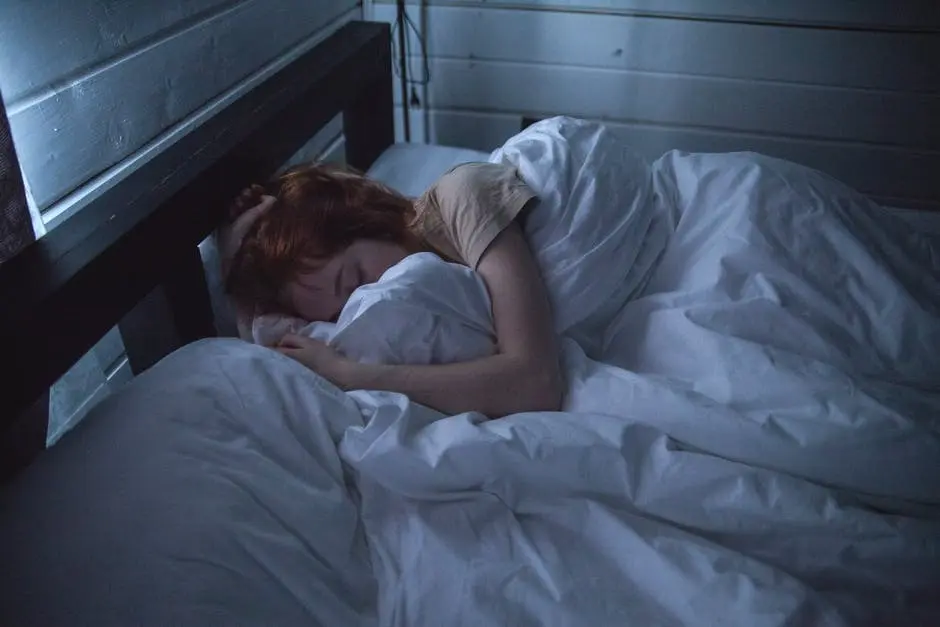
It is no surprise that your quality of sleep impacts your mental health. Your sleep pattern can lead not only to fatigue and lack of focus but also serious mental health struggles. A big part of taking care of your mental health is prioritizing your sleep, but it isn’t as easy as it sounds. As poor sleep can lead to mental health issues, the reverse is true as well.
Many people struggling with mental health problems report insomnia as a symptom. According to the Centers for Disease Control and Prevention (CDC), “One-third of US adults report sleeping less than the recommended amount, and approximately 20% live with a mental illness.”
Insomnia is one of the most common sleep disorders. It may manifest in trouble falling asleep, staying asleep, or both. Some causes of insomnia include stress, emotional distress, inactivity, and financial struggles. All of these can be symptoms or causes of mental illnesses like anxiety or depression. Because a lack of sleep can lead to reduced energy and exhaustion, it can make you feel anxious, irritable, and depressed. These can negatively impact your work, relationships, and daily life. When you have trouble learning, focusing, or remembering, it can lead to accidents, a lack of productivity, or worse. The American Academy of Sleep Medicine notes how vital a solid night’s sleep is. Getting less than seven or more hours of sleep per night can lead to several chronic diseases. Quality sleep allows your body the time and rests it needs to heal itself, recover, and subconsciously deal with struggles. When you miss out on sleep time and quality, you may suffer from:
Disturbed sleep leads to such issues because your body and mind cannot process new memories or connections without it. Your memory, emotions, and mood are all linked to your quality of sleep. Without that time to refresh and process, you are at a greater risk for mental health issues like depression and even drug addiction. When struggling with sleep issues, some people may choose to self-medicate with drugs or alcohol, leading to dependence and furthering their lack of sleep, disturbed sleep, and mental health problems. Of course, a lack of sleep does not surely lead to addiction or mental health problems, but the poor functioning that results from a lack of sleep reduces physical and psychological health. When your mood is worsened and your physical health suffers, you experience more significant psychological distress. Lack of sleep does not only lead to problems but can be a symptom of them as well. Someone with healthy sleeping habits may struggle with insomnia as an effect of anxiety, depression, or other emotional stressors. Then, that lack of sleep only increases the struggle. Sleep restores your waking energy and helps the brain function at its highest level. Proper sleep can improve mental health, allowing you the ability to face problems that come your way. This is why noting your sleep struggles and improving your habits are so crucial to your mental health care.
Improving your quality of sleep not only boosts your energy and focus but also enhances your mood. Establishing a proper night’s sleep is essential to your health on every level. Some steps you can take on your own include:
Sleep should always be a concern when being treated for mental health issues. There are many facets of mental health treatment, and focusing on sleep quality should be part of your care plan. While improving sleep can help reduce symptoms of health disorders, it can also serve as preventative care. Ensuring you continually have an uninterrupted night of sleep can reduce your chances of developing mental health problems or an addiction.
Suppose you have enacted the recommended changes to your routine and still find yourself struggling with insomnia. In that case, it is essential to work with a health professional to receive the proper care for your situation. A doctor or psychiatrist can work with you to create a plan that treats insomnia as a cause or effect of mental health problems.
Getting on a good night’s sleep is not just something to do so you aren’t tired. Rest significantly impacts many parts of your life. When sleep is interrupted, your mood, health, and functions suffer. When this becomes a pattern, it can lead to depression, anxiety, and substance abuse. At the same time, struggling with mental health issues can lead to insomnia, only worsening the other symptoms. Prioritizing a healthy sleeping routine is vital to all aspects of your health. Although you can make changes yourself, it is beneficial to work with a professional to adjust your sleep and work on your mental health. At California Care Detox and Treatment, we emphasize rest when treating mental illnesses and addiction. We know how important your sleep is to your overall wellness and want to ensure we do what we can to help you recover. Call us at (949) 281-0632 for help.